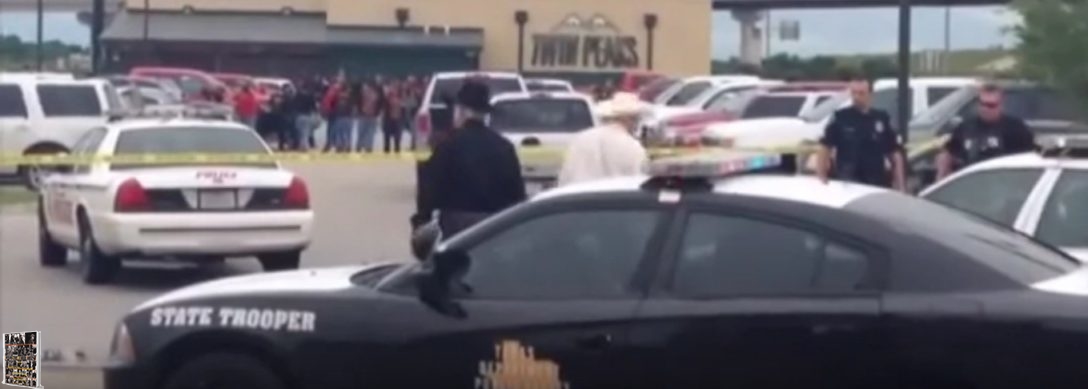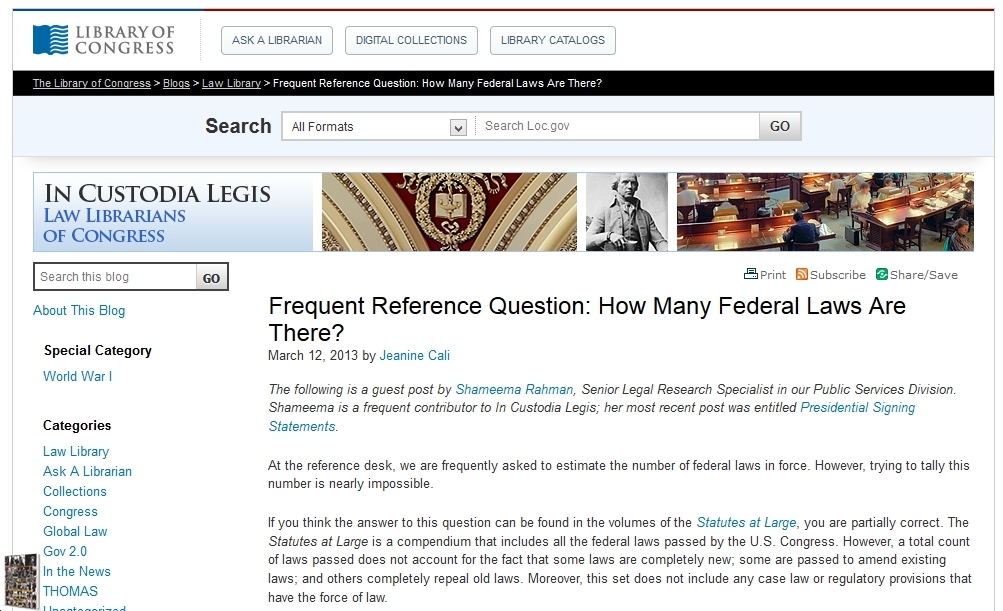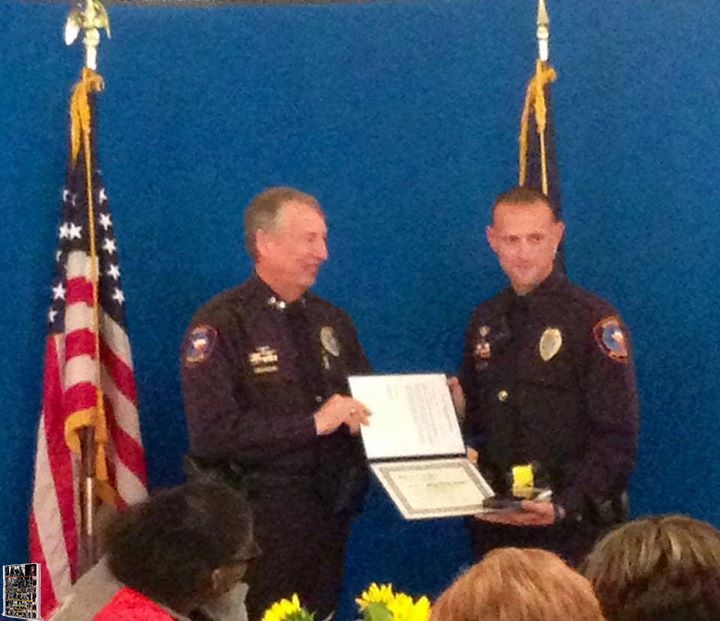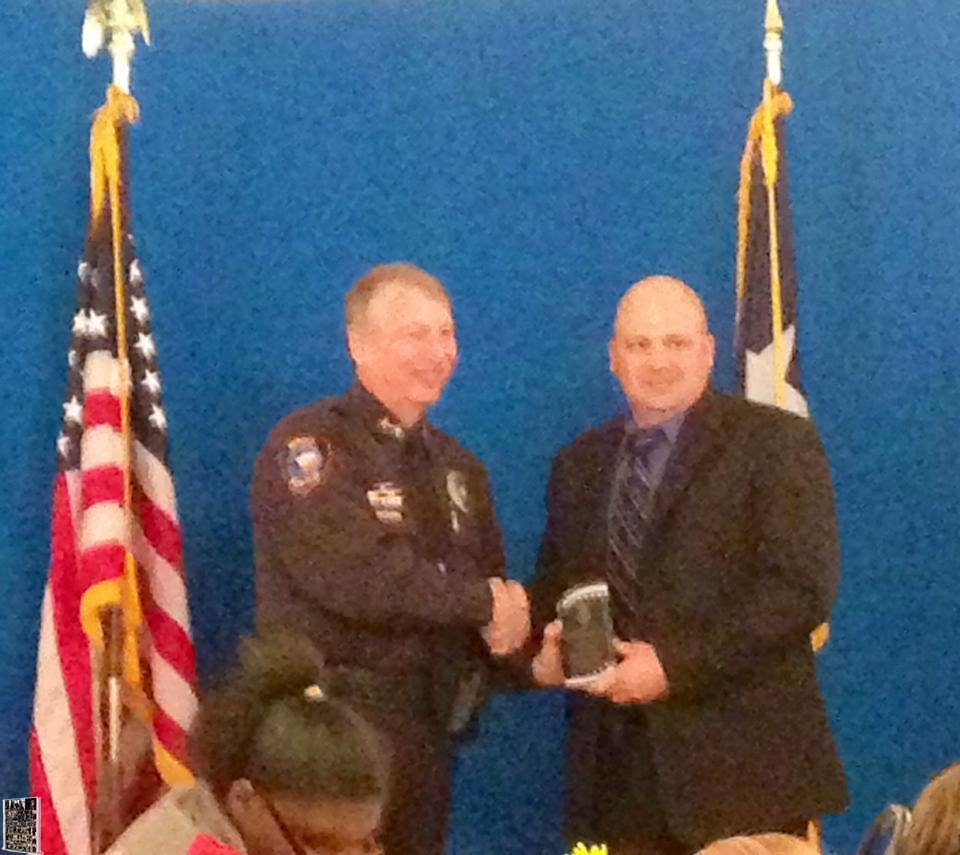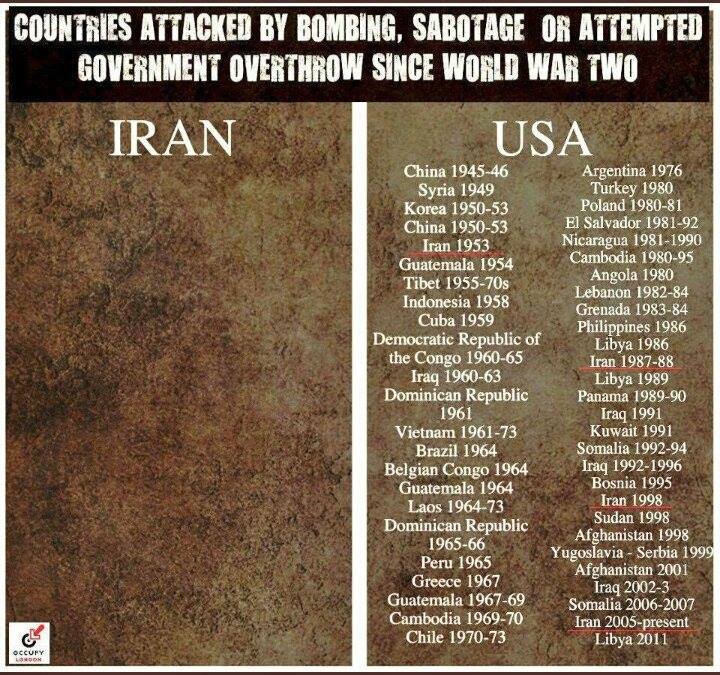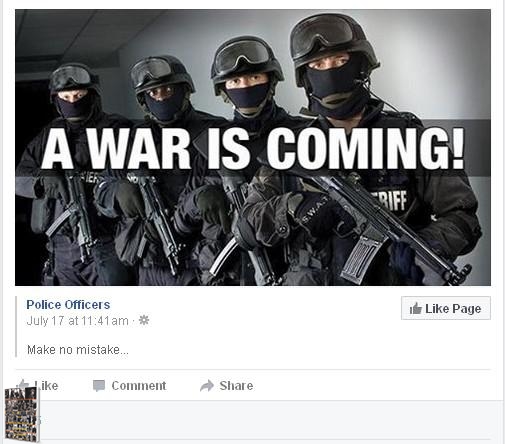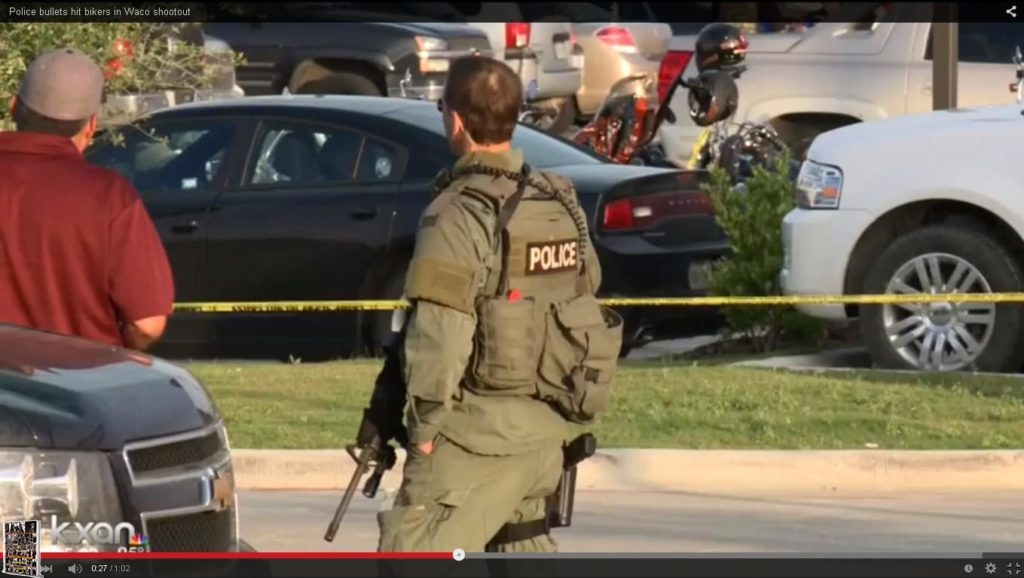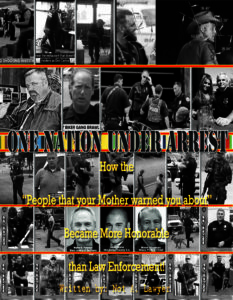The interesting thing about a District Attorney who also is listed as a “gang member” belonging to a Motorcycle Club from Texas, is that if you are trying to find a standard for what either of the two are supposed to be in real life, Mark Gonzalez sets the standards high for both motorcycle club members, as well as attorneys prosecuting crime on behalf of the State of Texas. That fact, in and of itself, is likely the most interesting paradox that has been a product of researching the Twin Peaks tragedy.
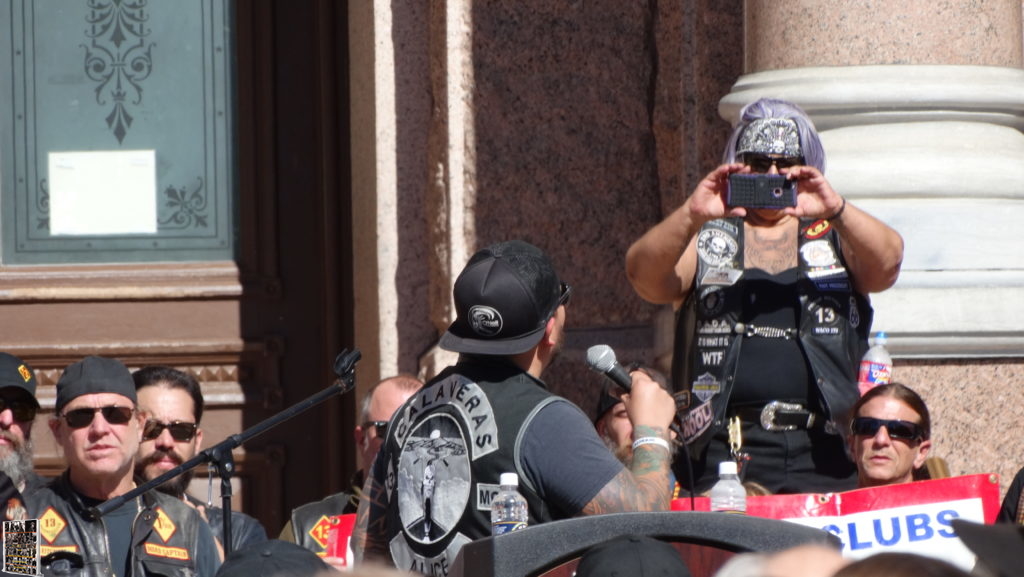
The Most Unlikely D.A. In America
“He’s a biker attorney who specializes in getting small-time defendants off. He’s considered a gang member by Texas police. And now he’s the county’s chief prosecutor. Can Mark Gonzalez change the system?”
….. in 2016, Nueces also elected Gonzalez, a 38-year-old Democrat and self-described “Mexican biker lawyer covered in tattoos.” Before being elected, Gonzalez had never prosecuted a single case: For his entire 10-year career, Gonzales had specialized in getting accused criminals off the hook—working most closely with low-income, mostly minority offenders, fighting low-level charges for marijuana and other substances. His pride in his work is expressed in a spectacular tattoo that he had inked across his chest a few years ago, reading, in colorful gothic type, “Not Guilty.”
The above quote came from one of the most in depth articles about Mr. Gonzalez that the “Left Stream Media” has published concerning Mark’s family, his job, his club, and his ability to make a person feel comfortable talking to them. It is worth the read.
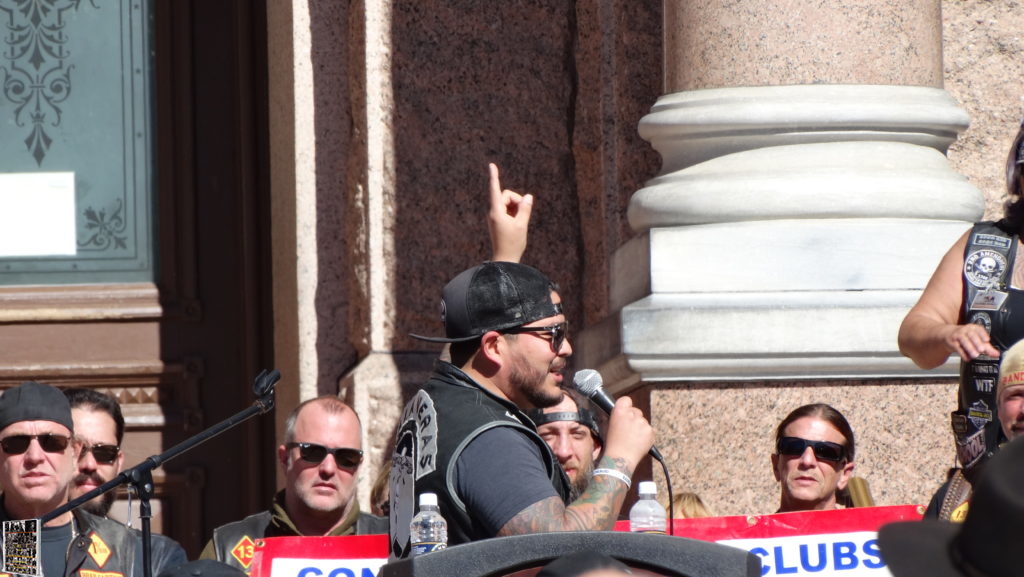
A goal here is to introduce the reader to Mark Gonzalez, his Motorcycle Club Los Calaveras, and their role in the collective known as the Confederation of Clubs and Independents of Texas (C.o.C.&I.). The role of the Independent riders in Texas are to unite the common rider with the more experienced riders, and show all riders the ways of the road in motorcycle safety and navigating the halls of Justice. In Texas, that involves politics, like all things in Texas.
When I met Mr. Gonzalez, after taking the above pictures at the Legislative Day event in 2017 held at the state capitol, the exact words I said to him whilst shaking his hand were, “I have never wanted to shake the hand of a D.A. before.” To which his response was, “I don’t blame you!” I had also commented on how his rock star appearance would never let on that he was such a beast. It was a casual conversation on the front porch of our house. Mr. Gonzalez had just informed and reminded the crowd of around 1,400 bikers that “the State Capitol Building in Austin Texas was OUR HOUSE!” He means it.
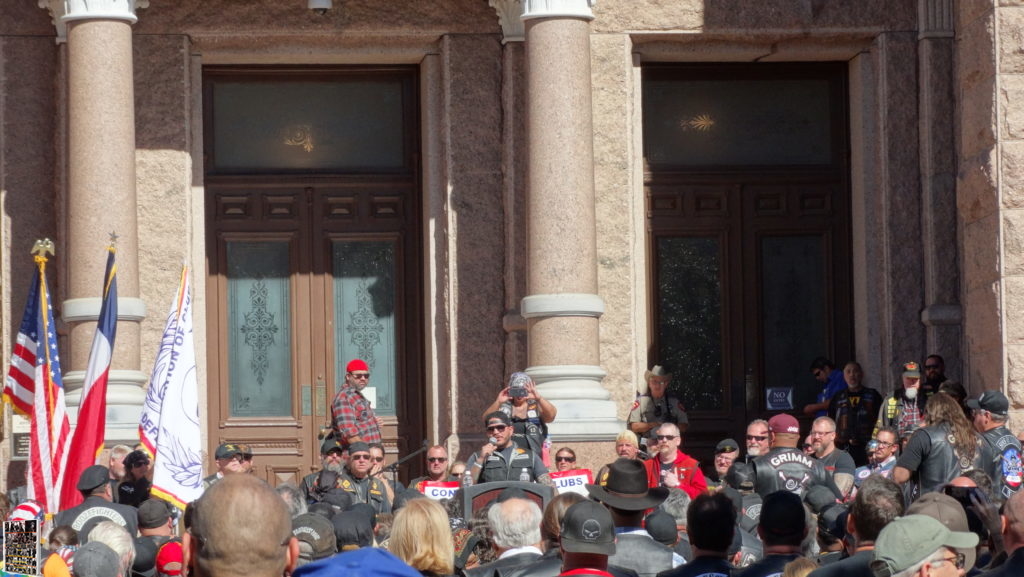
The paradox of this MC Member also being a District Attorney includes thoughts like:
- “Is an Outlaw 1%er capable of being the law?”
- “Is this a good bad guy, or a bad good guy?”
- “How can an officer of the court, approved by the Governor Gregg Abbott, also be on a gang member list with DPS?”
- “Does this mean that the 1%ers joined the blue line gang?”
- “Abel Reyna the former District Attorney of McLennan County once said that “his gang would beat the biker gangs,” so what now?”
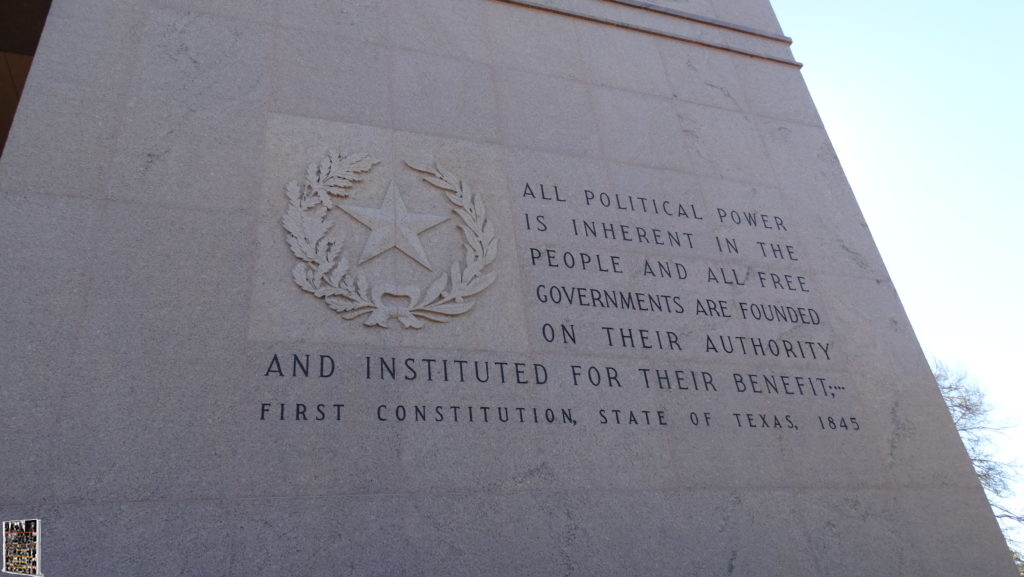
Another goal, as well, will be confronting the important theories of-
“1%ers” are “1%ers” because they follow a strict code of ethics, moral judgements and an overall set of life guidelines similar to club bi-laws:
- “We don’t talk to the law,” which enables the Outlaw mentality of
- “All Cops Are Bad,” and the
- “the D.A. is basically in charge of the cops.”
- “No co-operation with any Law Enforcement,
- the D.A.,
- the Sheriff,
- State Police,
- their family or friends.
- NO ONE!”
- Your Brother should be doing what is right by everyone, if he is not, it is our role to “correct his ways,” one on one first, and then with appropriate club strength if necessary.
- Support your brother and his family, and the community we are all in.
_________________________________________________________
Completely reverse the above words in theory:
“Law Enforcement Officers” are “Law Enforcement Officers” because they follow a strict code of ethics, moral judgements and an overall set of life guidelines called “the law,” although no one knows how many laws there actually are, that is how omnipotent “the law” is….
- “We are the law,” which enables “the Law” mentality of “Us Vs. Them,”
- “All Outlaws Are Bad,” and the
- “Gangs are basically in charge of the outlaws.”
- “No co-operation with any Outlaws,
- from the D.A. (well maybe the D.A. but that is only for the D.A. to know),
- the Sheriff (well maybe the Sheriff, but that is only for the Sheriff to know),
- State Police (well maybe the State Police, but that is only for the State Police to know),
- their family or friends.
- NO ONE!”
- Your Brother should be doing what is right by everyone, if he is not, it is our role to “correct his ways,” one on one first, and then with appropriate department strength if necessary.
- Support your brother and his family, and the community we are all in.
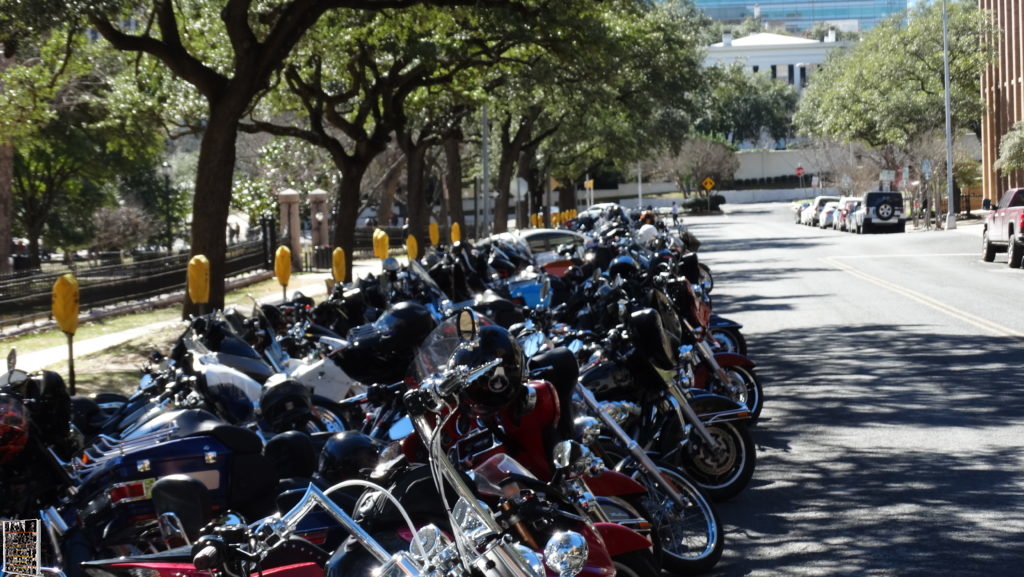
“A jury in El Paso, Texas decided Friday that it is illegal for a member of the Bandidos Motorcycle Club to possess a weapon in the state. DT, a member of the BMC in El Paso, was arrested October 16th, 2017 on his way to work for Unlawful Carrying Of A Weapon. Although it was conceded by all sides that DT had no felony record and was not a convicted criminal, the prosecution argued, and the jury agreed, that merely being a member of the Bandidos was enough to consider an individual a gang member prohibited from exercising their 2nd Amendment rights.” – From the Motorcycle Profiling Project Published on September 25th, 2018 | by David “Double D” Devereaux
What if a jury found that, because of the amount of officer related killings, all cops had to surrender their firearms?
This theory analysis might show that the contempt for the corruption that is allowed to exist inside of the Law Enforcement community, with zero accountability for those who break their own laws, these things are why the “Outlaw” community despises, distrusts, and disrupts the corruption of something that was supposed to work for the protection of everyone.
No Faith in a corrupt system, and the corruption keeps acting like they are providing “safety” to the community, when all they are sowing is distrust.
It is not that 1%er’s are anti-government, it is more true that they are anti corrupt governments. As they should be, as we all should be.
To have a corrupt government, break the rules, laws and spirit of the Constitution in order to convict a person or a group of people because they have a difference of opinion, or moral standards or political views is the very definition of tyranny.
Just US. It is patriotic to call out those who are corrupt and unjust, when they hold seats of public trust, especially as elected officials. The entire local, state, and federal legal system, justice system, criminal conviction system, and law enforcement system are viewed as corrupt-able, bribe-able, non-trust-able, and non-rely-able by the general public in 2019.
“You express a great deal of anxiety over our willingness to break laws. This is certainly a legitimate concern. Since we so diligently urge people to obey the Supreme Court’s decision of 1954 outlawing segregation in the public schools, at first glance it may seem rather paradoxical for us consciously to break laws. One may well ask: “How can you advocate breaking some laws and obeying others?” The answer lies in the fact that there are two types of laws: just and unjust. I would be the first to advocate obeying just laws. One has not only a legal but a moral responsibility to obey just laws. Conversely, one has a moral responsibility to disobey unjust laws. I would agree with St. Augustine that “an unjust law is no law at all.”
Now, what is the difference between the two? How does one determine whether a law is just or unjust? A just law is a manmade code that squares with the moral law or the law of God. An unjust law is a code that is out of harmony with the moral law. To put it in the terms of St. Thomas Aquinas: An unjust law is a human law that is not rooted in eternal law and natural law. Any law that uplifts human personality is just. Any law that degrades human personality is unjust. All segregation statutes are unjust because segregation distorts the soul and damages the personality.” – Martin Luther King JR. from the Birmingham Jail
The survivors and victims of the Twin Peaks Ambush have gone through the labyrinth of
- red tape,
- survey filing [MPP National Survey],
- petition filing,
- bail bond condition following,
- bond company paying,
- lawyer paying,
- lawyer trusting,
- system trusting,
- system doubting,
- lawyer doubting,
- not knowing who to trust,
- roller coaster ride – that has lasted entirely way too long.
This coming May 17th will mark the 4 year anniversary of the Twin Peaks Biker Ambush and with that comes a new hope for “Justice” for the remaining men under indictment for rioting and various other nefarious charges that currently still exist for 28 or 14.58% of the 192 original defendants.
“After his defeat, Reyna dismissed the cases against all but 28 of the original 155 indicted bikers. One of those was dismissed by special prosecutors, which also are handling three others.” Ex-DA Reyna joins Houston-based law firm in new Waco office By TOMMY WITHERSPOON on Jan 14, 2019
At least two things are evident now, in hindsight:
1) There was a concerted effort by the state and federal government to drain the resources and finances of the C.o.C. & I.’s main support club, of both volunteer man hours, and event financing, even though there was not enough evidence to even indict C.o.C. & I. members.
2) The McLennan County, State of Texas, and Federal Government Agencies, worked in collusion – under the color of law, to slander the Bandidos Motorcycle Club in the media, before a multi-agency government operation was uncovered, where the Bandidos MC and the C.o.C. & I. were targeted, along with their support clubs, with non-FISA court (illegal) wiretaps, in order to try and gain a conviction in Federal Court against the leadership at the time of the investigation.
Another hope is that since Abel Reyna was defeated in the last election, perhaps the new District Attorney for McLennan County, Barry Johnson will proceed with more common sense, ethical application of broad laws, and simultaneously correct the horrible wrongs that have been done upon the victims and survivors of the Twin Peaks Biker Ambush as well as the community at large who has been detrimentally affected by this fiasco of the governments making.
The task is to establish trust in the officers of the court, the court itself, and the spirit of the laws within.
Dispatch to Gonzalez
Dear Mr. Mark Gonzalez,
The essence of this entire book is for someone of decent moral character, and “proper authority,” to view what has been uncovered and overlooked from the past 4 years and make a discerning and proper investigation into the events of May 17th, 2015, with the full transparency of the involvement of the United States Department of Justice and any Agency under their guidance or jurisdiction.
With these types of S.W.A.T. team events, there was quite the military presence, without the Military Uniforms, just the weapons.
There seems to be some sort of Operation Order in effect, or training S.O.P. with multiple agencies of both county, city and state police, as well as Federal Agents on scene before the first shots were fired, and the former District Attorney of McLennan County, Abel Reyna not only knew about the training leading up to the event, as well as the use of UnderCover Agents from his Detectives Unit, but that Abel Reyna directed the prosecution on May 17th, 2015, so that any D.o.J. involvement would never be found out, as he would protect the evidence of the day with malicious prosecution against the witnesses.
Abel likely felt that he had an open door to violate the Brady v. Maryland (1963) rule which requires that the prosecution must turn over all exculpatory evidence to the defendant in a criminal case. Exculpatory evidence is evidence that might exonerate the defendant. Why would this door be open, one might ask, because the Governor was being escorted into the room.
What does Gregg Abbott have to do with Twin Peaks?
Everything. As the Governor, his signature would be required to get DPS cooperation to work with outside agencies on an undercover operation, using state funded assets and equipment. Or does this sort of event happen with multiple agencies and the DPS and the Governor is not notified?
Let’s suppose this was an F.B.I. operation, as it appears to be. There are rules involved. Process, and steps, rules of procedure and funding.
Mr. Gonzalez, would you facilitate a full Senate Hearing Investigation into if Twin Peaks was a Federal Undercover Operation gone extremely wrong?
Perhaps a place to start is to investigate the 16,000 plus, Confidential Informants used by the Department of Justice, and how much their involvement with accessing drugs provided by their agencies of hire, might just increase local crime rates, fueling drug overdoses, and community violence, as well as a steady drug supply into the communities that we assume (incorrectly) that those agencies are here to protect.
It seems those agencies are providing job security for the Department of Justice, rather than actual Justice.
Then if the funding from those “churn investigations” by the B.A.T.F.E. and D.E.A. do not turn up any leads for how Operation Texas (Bottom) Rocker was funded, and the Governor’s office is not helping find the funding for their role, perhaps the Criminal Undercover Operations Review Committee can help?
D. Criminal Undercover Operations Review Committee (Undercover Review Committee)
(1) The Undercover Review Committee shall consist of appropriate employees of the FBI designated by the Director and Criminal Division attorneys designated by the Assistant Attorney General in charge of the Criminal Division, DOJ, to be chaired by a designee of the Director.
(2) When an application from an SAC for approval of an undercover operation involving sensitive circumstances specified in paragraph C(2) is received by FBIHQ, upon recommendation by the FBIHQ substantive section, the Committee members will meet to review the application. Criminal Division members of the Committee may consult with appropriate FBI personnel, senior DOJ officials, and the United States Attorney as deemed appropriate. The Committee shall submit the application to the Director or designated Assistant Director with a recommendation for approval or disapproval of the request and any recommended changes or amendments to the proposal.
(3) In addition to the considerations contained in IV.A. above, the Committee shall also examine the application to determine whether adequate measures have been taken to minimize the incidence of sensitive circumstances and reduce the risks of harm and intrusion that are created by such circumstances. If the Committee recommends approval of an undercover operation, the recommendation shall include a brief written statement explaining why the operation merits approval in light of the anticipated occurrence of sensitive circumstances.
(4) The Committee shall recommend approval of an undercover operation only upon reaching a consensus, provided that:
(a) If one or more of the designees of the Assistant Attorney General in charge of the Criminal Division does not join in a recommendation for approval of a proposed operation because of legal, ethical, prosecutive, or departmental policy considerations, the designee shall promptly advise the Assistant Attorney General and no further action shall be taken on the proposal until the designated Assistant Director has had an opportunity to consult with the Assistant Attorney General; and
(b) If, upon consultation, the Assistant Attorney General disagrees with a decision by the designated Assistant Director to approve the proposed operation, no further action shall be taken on the proposal without the approval of the Deputy Attorney General or the Attorney General.
(5) The Committee should consult the Legal Counsel Division of the FBI and the Office of Legal Counsel or other appropriate division or office at DOJ about any significant unsettled legal questions concerning authority for, or the conduct of, a proposed undercover operation.
(6) The Director, Assistant Attorney General, or other official designated by them may refer any sensitive investigative matter, including informant, cooperating witness, and cooperating subject operations, to the Undercover Review Committee for advice, recommendation or comment, regardless of whether an undercover operation is involved.
(7) The United States Attorney, Special Agent in Charge or any member of their staff, may attend the Criminal Undercover Operations Review Committee in order to advocate for the approval of an undercover operation.
(8) If the Special Agent in Charge and the United States Attorney jointly disagree with any stipulation set by the Criminal Undercover Operations Review Committee regarding the approval of an undercover operation, they may consult with the chairman of the Criminal Undercover Operations Review Committee who may schedule a meeting of the committee to reconsider the issue in question.
(9) At any time during the undercover operation the Special Agent in Charge can appeal any Headquarters decision directly to the Assistant Director. Likewise, the United States Attorney can appeal directly to the Assistant Attorney General, Criminal Division, or the Deputy Attorney General as appropriate.
If the Criminal Undercover Operations Review Committee can not help, then how did any other agency get their authorization?
In Conclusion Mr. Gonzalez, the 192 people involved in the arrests at Twin Peaks have a right to know what actually happened that day, as about 140 of those folks are still demanding justice. The people from all over the State of Texas and Oklahoma, who supported the bikers during their persecution and prosecution by the State of Texas and the Department of Justice, have been believing in false hope of Justice for the innocent in this situation.
Will you help the people of Texas as an elected official, and representative of the State of Texas, find a solution to this complicated situation?
Supposedly there is a Federal Government shutdown at the present moment, and since our taxes are still being required, We the People, are not sure what agencies might still be going ahead with their operations and or duties. Do the rats still get their cheese, do the UnderCover Agents still get their dope to sell, or do the 16,000 Confidential Informants lose their privileges and or qualified immunity as well as funding and can be brought to Justice in a court of law in the jurisdiction that they supply crime in?
According to a recent review done by the FBIAA VOICES FROM THE FIELD
JANUARY 2019 – FBI Agent Accounts of the Real Consequences of the Government Shutdown, it would seem the FBI can not pay their informants to buy drugs and continue their criminal lifestyle.
“Two days ago, our financial office advised that the division has exhausted [Organized Crime Drug Enforcement Task Force (‘OCDETF’)] operational funding.… We are in the middle of a critical OCDETF investigation targeting kilo-quantity trafficking of methamphetamine and heroin by street gang members…. Without money to pay sources and conduct controlled narcotics purchases, our task force is unable to continue these critical investigations. This task force is the only task force in this region specifically targeting interstate street gang criminal activities.”
What is OCDETF?
“The FY 2017 OCDETF Program Budget Request comprises 2,975 positions, 2,902 FTE, and $522.135 million in funding for the Interagency Crime and Drug Enforcement (ICDE) Appropriation, to be used for investigative and prosecutorial costs associated with OCDETF cases targeting high-level criminal drug and money laundering networks as well as priority transnational poly-crime organizations whose primary criminal activity may not necessarily be drug-related.”
There are some serious questions posed in the prose above, and in the chapters before this dispatch in brief.
For those still on the battle lines of malicious prosecution in Waco, all efforts are involved in their defense, from across the nation, concern broils in anticipation as to the outcome of “JUSTICE for the Waco 28.”
Mr. Gonzalez, I hope this finds you well, and with proper reinforcements to respond to Waco’s request for help in finding justice in the halls of a competent courtroom in Texas. As a former resident of Bruceville Eddy (10 Miles from Waco), this saga has affected far more people than the ones that made the papers or the courthouse steps. This is a Hill Country issue and then a State of Texas issue and unfortunately a National Epidemic Issue and we need the help of you and your familia.
There is also talk of a Wall going up on our Southern Border to curb illegal drug trafficking into the United States by “illegals” as the legal immigration issue mounts upon us. What if we take care of the drugs inside the country first?
Can we assure the general public that the Confidential Informants employed by the various forms of payment by the United States Government, are not supplying a multitude of drugs as a job, before we are so quick to conclude that a Wall is the only way to fix our opioid epidemic?
Please consider taking up this task for the safety of our state and it’s residents. If funding is necessary, maybe allocate funds away from DPS and their oversight of the Texas Compassionate Use Program and the licenses and fees they have acquired. That is a glaring conflict of interest as the Department of Public Safety is the first States Witness in the prosecution of a patient using Cannabis. They refuse to allow an appropriations bill to mention what DPS will do with the funds from TCUP. Maybe you can find a great use for them.
Thank you for your time and potential interest in this process of finding Justice out there somewhere for these folks.
Signed,
We the People
